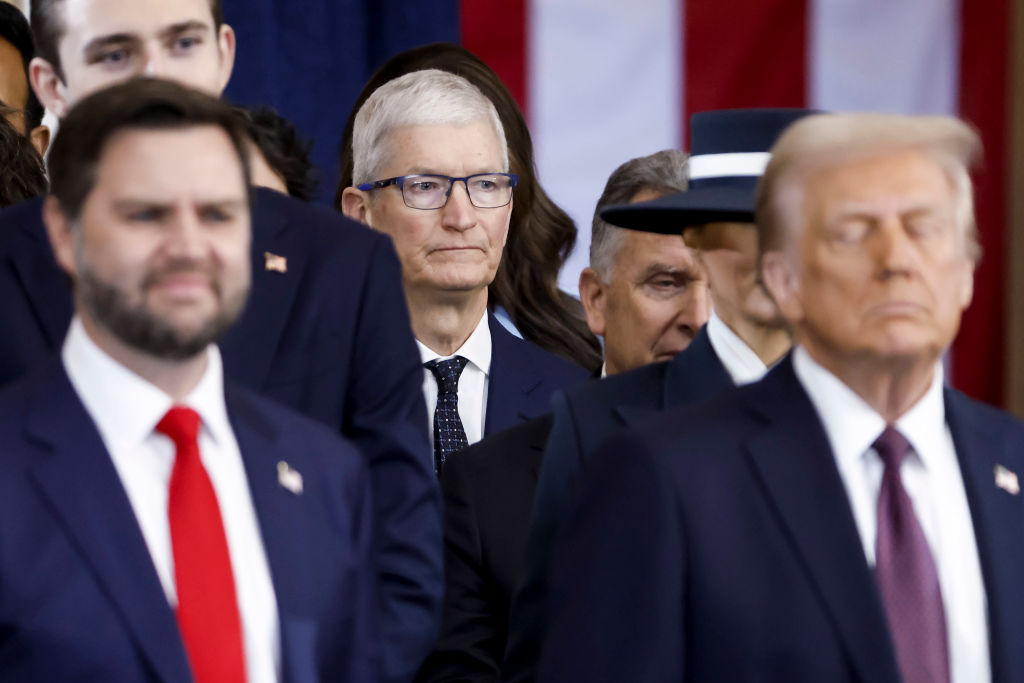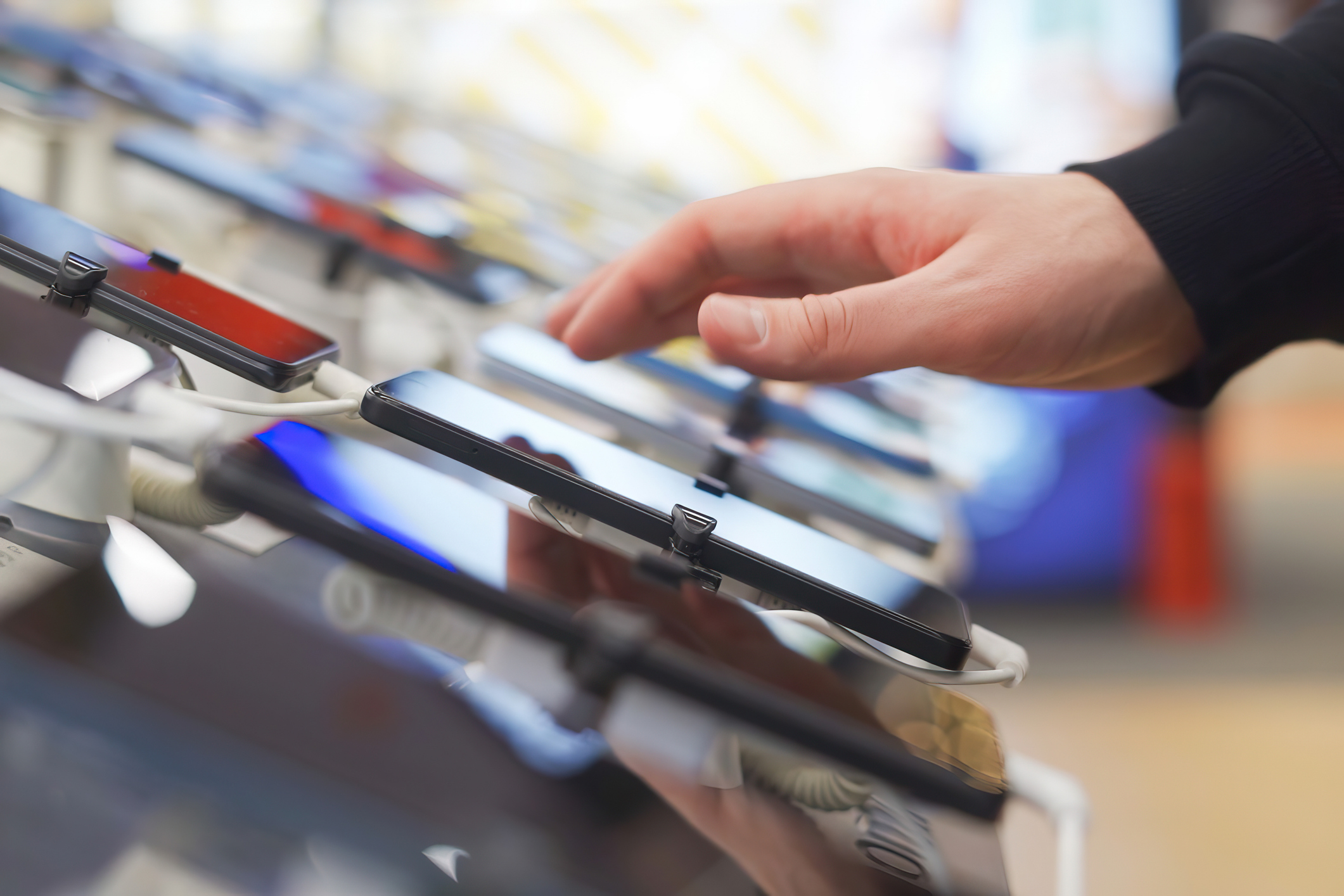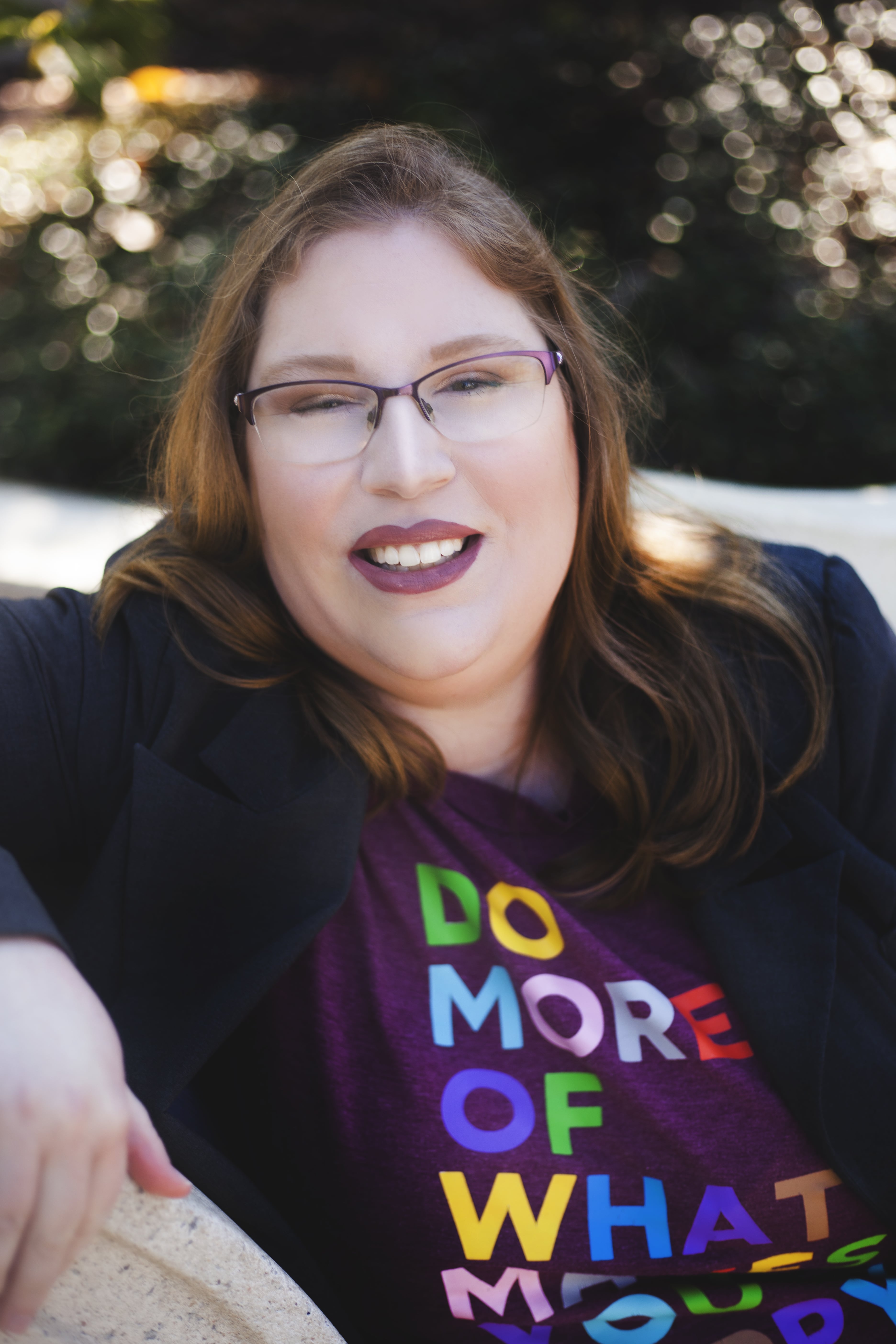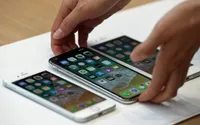Should You Buy an iPhone Before Tariffs Hit?
Tariffs could raise prices on tech imports, but timing your iPhone purchase right could save you hundreds.

Alexandra Svokos

Profit and prosper with the best of Kiplinger's advice on investing, taxes, retirement, personal finance and much more. Delivered daily. Enter your email in the box and click Sign Me Up.
You are now subscribed
Your newsletter sign-up was successful
Want to add more newsletters?

Delivered daily
Kiplinger Today
Profit and prosper with the best of Kiplinger's advice on investing, taxes, retirement, personal finance and much more delivered daily. Smart money moves start here.

Sent five days a week
Kiplinger A Step Ahead
Get practical help to make better financial decisions in your everyday life, from spending to savings on top deals.

Delivered daily
Kiplinger Closing Bell
Get today's biggest financial and investing headlines delivered to your inbox every day the U.S. stock market is open.

Sent twice a week
Kiplinger Adviser Intel
Financial pros across the country share best practices and fresh tactics to preserve and grow your wealth.

Delivered weekly
Kiplinger Tax Tips
Trim your federal and state tax bills with practical tax-planning and tax-cutting strategies.

Sent twice a week
Kiplinger Retirement Tips
Your twice-a-week guide to planning and enjoying a financially secure and richly rewarding retirement

Sent bimonthly.
Kiplinger Adviser Angle
Insights for advisers, wealth managers and other financial professionals.

Sent twice a week
Kiplinger Investing Weekly
Your twice-a-week roundup of promising stocks, funds, companies and industries you should consider, ones you should avoid, and why.

Sent weekly for six weeks
Kiplinger Invest for Retirement
Your step-by-step six-part series on how to invest for retirement, from devising a successful strategy to exactly which investments to choose.
President Donald Trump reinforced his threat to impose tariffs on Apple (AAPL) on Friday, the latest in his "America-first" economic push.
"I have long ago informed Tim Cook of Apple that I expect their iPhone's that will be sold in the United States of America will be manufactured and built in the United States, not India, or anyplace else," he posted on his Truth Social platform. "If that is not the case, a Tariff of at least 25% must be paid by Apple to the U.S. Thank your for your attention to this matter!"
Given the attention the president is paying to the company and the tariff negotiations with China, where most iPhones are produced, iPhones are high on the list of items people are deciding to stock up on amid tariffs.
From just $107.88 $24.99 for Kiplinger Personal Finance
Become a smarter, better informed investor. Subscribe from just $107.88 $24.99, plus get up to 4 Special Issues

Sign up for Kiplinger’s Free Newsletters
Profit and prosper with the best of expert advice on investing, taxes, retirement, personal finance and more - straight to your e-mail.
Profit and prosper with the best of expert advice - straight to your e-mail.
If you're in the market for a new phone and deciding if you should get one now, in case prices go up later due to tariffs, the answer isn't a straightforward yes or no. Regardless of the tariff situation, though, there are ways to make your next phone purchase less expensive.
How tariffs may impact iPhone prices
Tariffs are taxes imposed on imported goods. Trump has made them a core part of his economic strategy in his second term, but most have been at least temporarily paused.
Initially, Trump was going to impose a high import tax of 145% on Chinese goods, but the U.S. and China agreed to a reduction to 30% as well as a 90-day suspension on May 12. The Trump administration had also temporarily exempted smartphones from the original 145% tariffs.
The original tariff announcement in early April sent Apple shareholders reeling. The stock dropped nearly 25% year-to-date by April 4. Since that drop, the stock has seen some recovery, but it's still down for the year.
CEO Tim Cook does seem to be trying to counter the tariffs. After attending Trump's inauguration (and reportedly donating $1 million to it), he met with Trump at the White House earlier this week, according to Politico. Apple also has been taking steps to move production to India, where tariffs could be lower, but Trump's Friday Truth Social post shows the president doesn't think that's a good enough solution.
Should a 25% tariff be imposed, it's likely the cost would drip down to customers buying new Apple products. Even if production were to move to the U.S., though, prices would also increase. Dan Ives of Wedbush suggests the iPhone price would go to $3,500 if produced in the U.S. due to labor costs and the massive cost of investment needed to make that happen, per CNBC.
For more information, see: What’s Happening With Trump Tariffs? New Rates and Trade Talks
Should you buy a new iPhone?

It may be tempting to run (not walk) to your nearest Apple store and buy a new iPhone, but the big question you should ask yourself is: Do I really need one?
Pull your phone out of your pocket and take an honest look at it.
Is it several years old and barely functioning? If so, a new unit may be in order.
But if you're like many Apple product fans, you eagerly purchased the latest iPhone soon after it was released. Meanwhile, the device you bought the year before still functioned perfectly. While wanting the newest (and potentially best) model is understandable, your buying habit costs you a lot of money.
Let's say you bought the latest iPhone for $1,000 in 2023. Then, you did it again in 2024. When you divide the purchase price by 12, your phone costs you around $83 per month — not including your service contract or accessories, like a protective case or AirPods.
Now, let's say you only bought a new phone in 2023. When you spread the purchase price out over two years, your monthly cost drops to around $42.
Extend that a little further: Delaying your new phone purchase for three years results in it having just a $28 monthly price tag. While the difference isn't a life-changing sum, it could mean more wiggle room in your budget or cash to invest.
How to extend your iPhone's life
Your phone was built to last for several years, but if you have concerns about its potential longevity, there are many things you can do to extend its useful life, such as:
- Not using your device in extreme heat (when possible)
- Unplugging your phone when it's fully charged
- Replacing your battery every few years (much cheaper than buying a new unit)
- Updating your apps and the operating system regularly
- Cleaning the outside gently to prevent eroding the coating on the protective shell
It can also help if you're willing to do a little troubleshooting and basic DIY maintenance when something isn't working quite right.
For instance, you could cure poor battery life by cleaning the charging port or remedy subpar sound quality by cleaning the speaker.
How to save money on an iPhone
If you can't (or really don’t want to) postpone getting another phone, there are several things you can do to stay within your budget and maintain communication with the outside world, including, but not limited to:
Make a trade
Due to price increases on new devices, your older model iPhone could be in demand and worth more in trade than you think. For example, if you go through the Apple Trade In program, you can get up to $630 for an iPhone 15 Pro Max.
Haven't bought a new phone in years? Even an iPhone 8 is worth up to $45 in trade. If you're willing to part with your current unit, you could turn it into Apple and apply the value to the cost of the new device.
Meanwhile, many carriers also have trade-in deals. Verizon, for example, currently has a trade-in option with myPlan:
When you trade in any phone, any condition from Apple, Google or Samsung. With myPlan.
Choose a downgraded model
The top-tier option of each iPhone release offers attractive perks, such as:
- A bigger screen
- A fancier camera
- A faster processor
- More storage capacity
But do you really need those features? Would you notice their absence in your day-to-day phone use? Compare models to assess the functionality at each level.
If you're willing to forgo some bells and whistles, you can get a new device and save a bundle. For instance, the iPhone 16e (base model) starts at $599, while the iPhone 16 Pro Max (top-of-the-line version) starts at $1,199.
Companies like Best Buy also often have deals on new and pre-owned iPhones.
Buy used
If you have your heart set on a specific model, you can still save up to 15% when you buy an Apple Certified Refurbished iPhone.
Apple goes through the device with a fine-toothed comb before putting it up for sale, replacing the outer shell and battery.
The company also guarantees the device’s functionality with a one-year limited warranty and ensures it comes with the same cables and accessories as a new unit.
You may be able to get a better deal through a different vendor. However, the phone may not come with the same (or any) warranty.
Related Content
Profit and prosper with the best of Kiplinger's advice on investing, taxes, retirement, personal finance and much more. Delivered daily. Enter your email in the box and click Sign Me Up.

Laura has been a freelance writer since 2018. Her work primarily focuses on managing your money, navigating your career, and running a successful business. Her words have been featured in Yahoo Finance, US News & World Report, and many other publications. She earned her MBA and a Bachelor's in Psychology during her previous career in human resources.
- Alexandra SvokosDigital Managing Editor
-
 Dow Leads in Mixed Session on Amgen Earnings: Stock Market Today
Dow Leads in Mixed Session on Amgen Earnings: Stock Market TodayThe rest of Wall Street struggled as Advanced Micro Devices earnings caused a chip-stock sell-off.
-
 How to Watch the 2026 Winter Olympics Without Overpaying
How to Watch the 2026 Winter Olympics Without OverpayingHere’s how to stream the 2026 Winter Olympics live, including low-cost viewing options, Peacock access and ways to catch your favorite athletes and events from anywhere.
-
 Here’s How to Stream the Super Bowl for Less
Here’s How to Stream the Super Bowl for LessWe'll show you the least expensive ways to stream football's biggest event.
-
 Dow Leads in Mixed Session on Amgen Earnings: Stock Market Today
Dow Leads in Mixed Session on Amgen Earnings: Stock Market TodayThe rest of Wall Street struggled as Advanced Micro Devices earnings caused a chip-stock sell-off.
-
 How to Watch the 2026 Winter Olympics Without Overpaying
How to Watch the 2026 Winter Olympics Without OverpayingHere’s how to stream the 2026 Winter Olympics live, including low-cost viewing options, Peacock access and ways to catch your favorite athletes and events from anywhere.
-
 Here’s How to Stream the Super Bowl for Less
Here’s How to Stream the Super Bowl for LessWe'll show you the least expensive ways to stream football's biggest event.
-
 The Cost of Leaving Your Money in a Low-Rate Account
The Cost of Leaving Your Money in a Low-Rate AccountWhy parking your cash in low-yield accounts could be costing you, and smarter alternatives that preserve liquidity while boosting returns.
-
 How to Add a Pet Trust to Your Estate Plan: Don't Leave Your Best Friend to Chance
How to Add a Pet Trust to Your Estate Plan: Don't Leave Your Best Friend to ChanceAdding a pet trust to your estate plan can ensure your pets are properly looked after when you're no longer able to care for them. This is how to go about it.
-
 Want to Avoid Leaving Chaos in Your Wake? Don't Leave Behind an Outdated Estate Plan
Want to Avoid Leaving Chaos in Your Wake? Don't Leave Behind an Outdated Estate PlanAn outdated or incomplete estate plan could cause confusion for those handling your affairs at a difficult time. This guide highlights what to update and when.
-
 I'm a Financial Adviser: This Is Why I Became an Advocate for Fee-Only Financial Advice
I'm a Financial Adviser: This Is Why I Became an Advocate for Fee-Only Financial AdviceCan financial advisers who earn commissions on product sales give clients the best advice? For one professional, changing track was the clear choice.
-
 Nasdaq Slides 1.4% on Big Tech Questions: Stock Market Today
Nasdaq Slides 1.4% on Big Tech Questions: Stock Market TodayPalantir Technologies proves at least one publicly traded company can spend a lot of money on AI and make a lot of money on AI.
